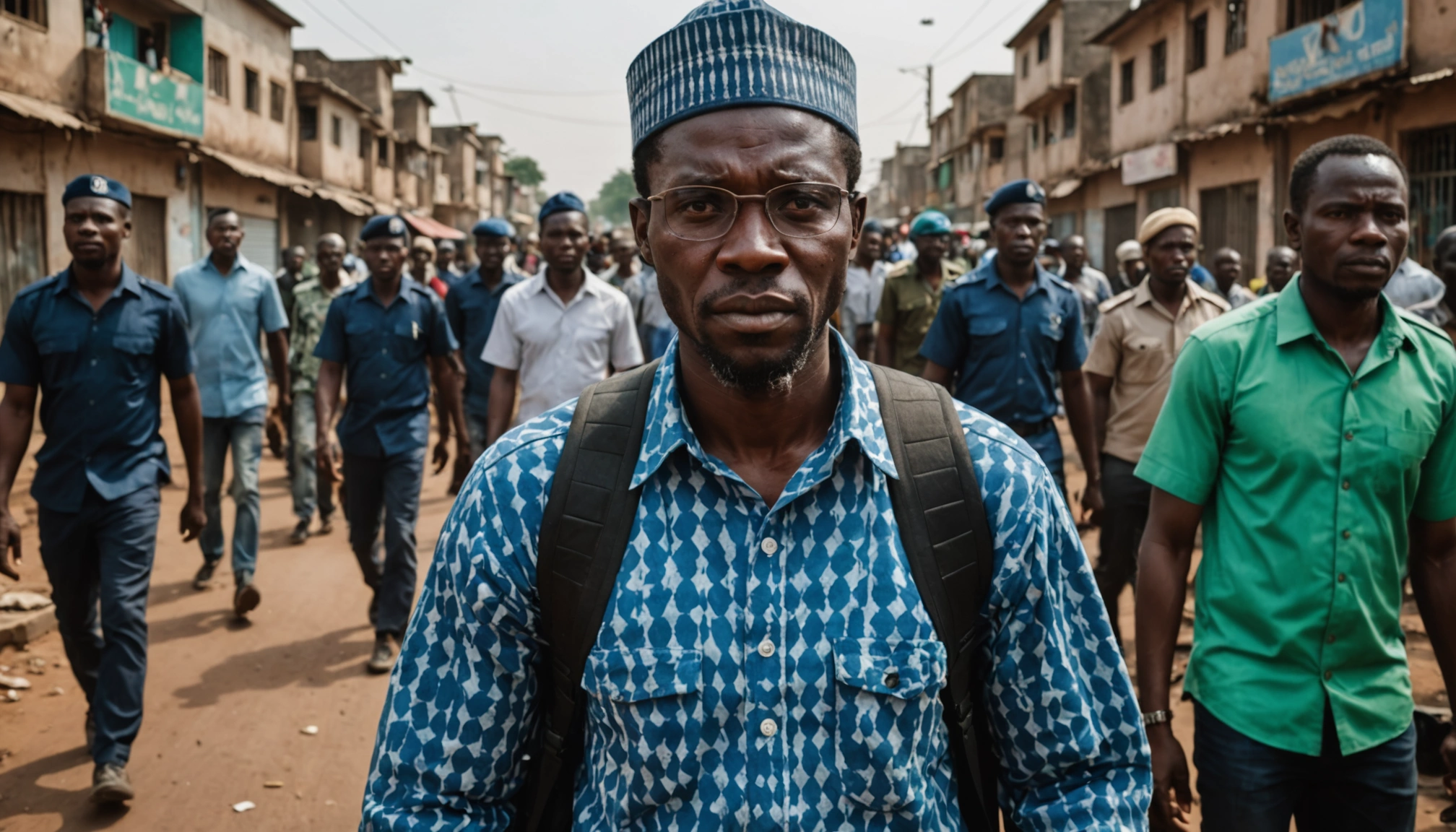Separatist Sit-at-Home Protests Paralyze Southeastern Nigeria, Costing Billions

Southeastern Nigeria is grappling with a crippling crisis fueled by separatist sit-at-home protests, resulting in billions of dollars in economic losses and hundreds of deaths over the past four years. What began as a campaign to pressure the government to release a detained leader has morphed into a protracted disruption, leaving businesses shuttered, schools empty, and residents living in fear.
The Genesis of the Sit-at-Home Order
The Indigenous People of Biafra (IPOB), a group seeking the secession of southeastern Nigeria and the restoration of the defunct Republic of Biafra, initiated the sit-at-home protests in August 2021. The move followed the arrest and extradition of their leader, Nnamdi Kanu, from Kenya to Nigeria, where he faces terrorism charges. Kanu's detention and trial have become a focal point for separatist sentiment in the region, which has a long history of agitating for greater autonomy, dating back to the Nigerian Civil War of the late 1960s.
Initially, the sit-at-home orders, primarily enforced on Mondays, saw significant compliance as residents demonstrated solidarity with Kanu. However, the situation quickly deteriorated as armed groups, often referred to as "unknown gunmen," began enforcing the shutdowns through violence and intimidation. These groups, sometimes claiming affiliation with IPOB, have been accused of arson, looting, and targeted killings of those who defy the order.
A Staggering Economic Toll
The economic consequences of the sit-at-home protests have been devastating. A recent report by SBM Intelligence, a Lagos-based think tank, estimates that the southeastern region has lost over $4.8 billion since the protests began. Major commercial hubs like Onitsha Main Market and Ariaria International Market have been repeatedly shut down, crippling trade and disrupting supply chains.
Small and medium-sized enterprises (SMEs) have been particularly hard hit. Micro-businesses are estimated to lose billions of naira annually due to the recurring shutdowns. The transport sector alone suffers daily losses of millions of dollars as logistics operations grind to a halt. The persistent disruption has led to income losses ranging from 50% to 70% for many businesses in the region.
Human Cost and a Climate of Fear
Beyond the economic impact, the sit-at-home protests have resulted in a significant loss of life and a pervasive climate of fear. SBM Intelligence reports that at least 776 fatalities have been recorded in connection with the protests between 2021 and 2025. Imo State has been the epicenter of the violence, followed closely by Anambra State. Victims include civilians who defied the sit-at-home order and those caught in clashes between security forces and armed groups.
The violence has instilled a deep sense of fear among residents, with many complying with the sit-at-home order not out of solidarity but for their own safety. Schools and hospitals have also been affected, with classes and appointments frequently canceled due to the shutdowns. "Mondays now feel so empty," a resident of Imo State told DW. "Businesses are shut down and shops locked down... It's not about solidarity, it's about [protecting] ourselves."
Fractured Governance and Eroding Support
While IPOB initially enjoyed considerable support in the region, the prolonged disruption and violence have eroded public backing for the sit-at-home protests. Compliance rates have fallen from over 80% in 2021 to below 30% in recent months, with many residents observing the order out of fear rather than conviction.
The crisis has also exposed fractures within IPOB, with internal divisions and splinter groups emerging. The rise of "unknown gunmen" and other armed actors has further complicated the situation, blurring the lines between politically motivated violence and criminal activity.
Calls for Dialogue and Community Policing
Analysts and community leaders are calling for a shift in approach to address the underlying grievances fueling the separatist movement. They argue that a heavy-handed security response alone is insufficient and that the government should prioritize dialogue and community engagement.
Some experts suggest that a non-military security presence, such as community policing, could help de-escalate tensions and build trust between the security forces and local communities. They also emphasize the need for transparency and fairness in Kanu's trial to address perceptions of marginalization and injustice.
A Region in Limbo
The sit-at-home protests have plunged southeastern Nigeria into a state of limbo, with no clear end in sight. The economic losses, human toll, and erosion of social cohesion have created a complex and challenging situation. Addressing the crisis will require a multi-faceted approach that combines security measures with political dialogue, economic development, and community engagement. Failure to do so risks further radicalization and instability in a region already grappling with deep-seated grievances. The path forward demands leadership, healing, and bold reforms to prevent further escalation and foster a more inclusive and prosperous future for southeastern Nigeria.
Related Articles


